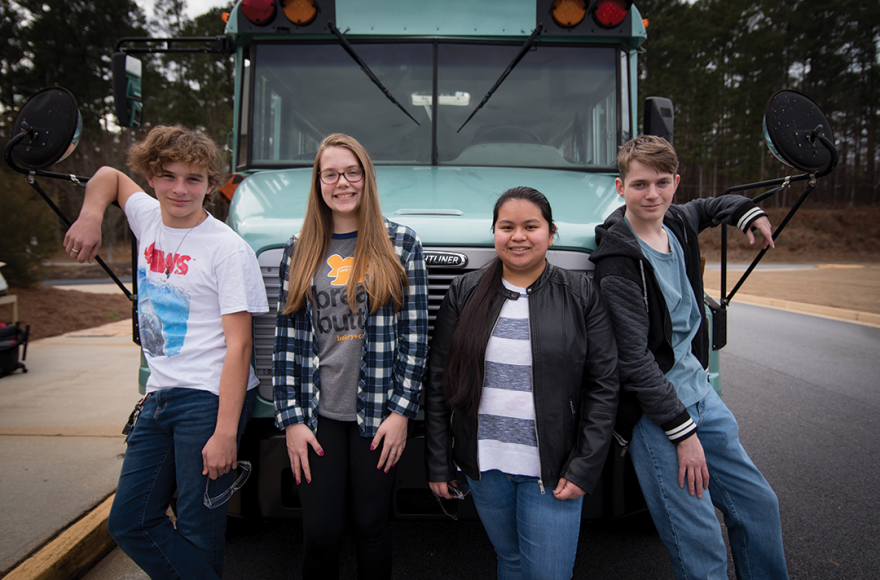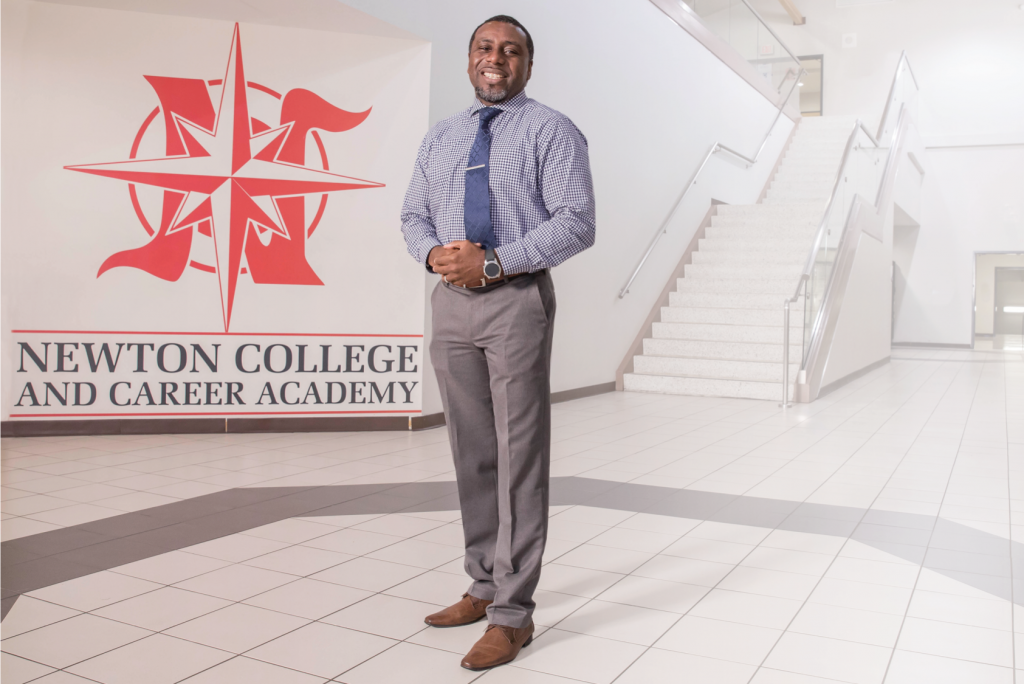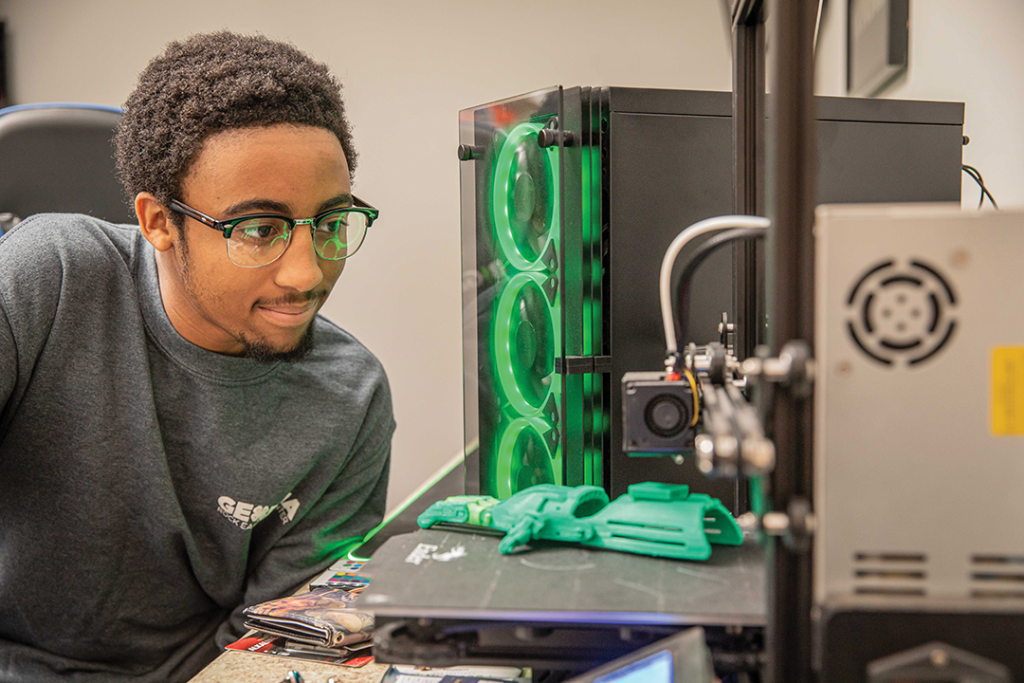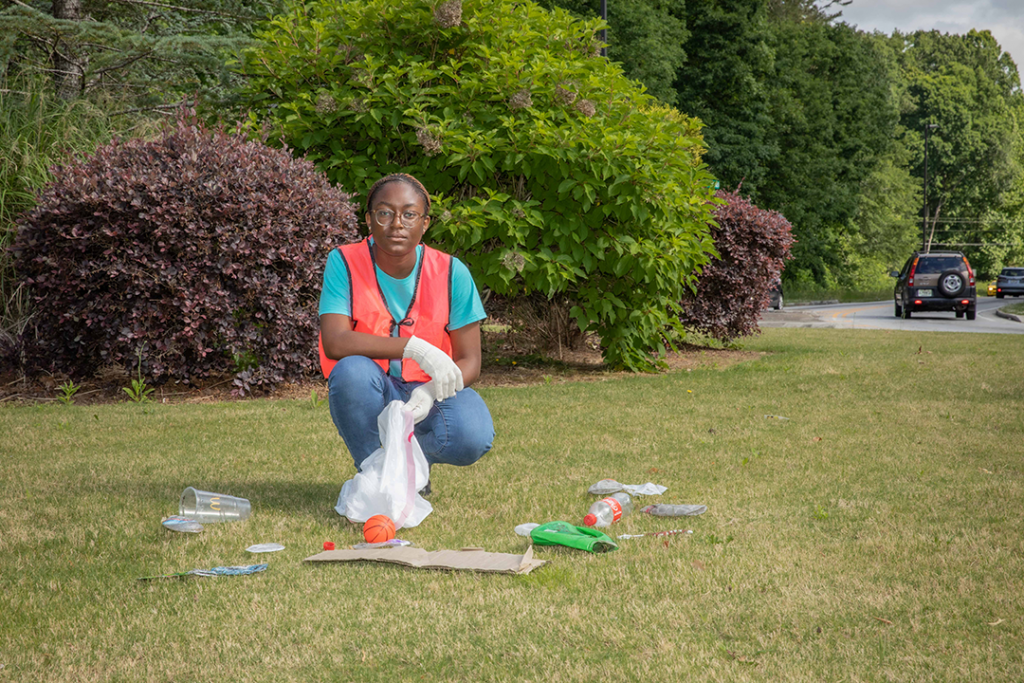The STEM Bus Extension Project at the Newton College and Career Academy takes STEM education and projects to students who may not have access to them in their normal school settings.
Bright and articulate, they exude a youthful enthusiasm for that which has bound them together in a common cause: a love of learning. Students at the Newton College and Career Academy STEM Institute in Covington have found a unique way to share that love through the STEM Bus Extension Project. STEM is an acronym for Science, Technology, Engineering and Math and, generally speaking, refers to an interdisciplinary and applied approach to education.
The purpose of the bus project is to take STEM education and projects to students who may not have access to them in their normal school settings. A repurposed school bus is literally the vehicle that is taking it to the streets. Once a bright yellow, its new teal exterior is indicative of a dramatic transformation inside.
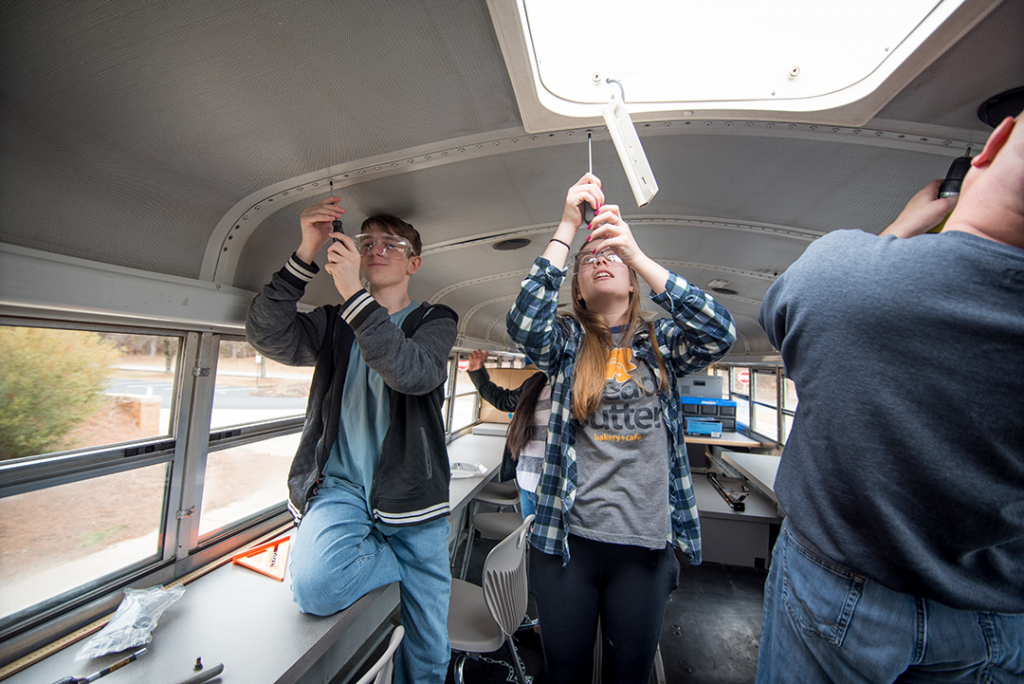
After more than two and a half years of design, research and development, the eight students who make up the current STEM Bus Extension Project team are rolling out their finished product: a mobile STEM lab. From conception to completion, the bus project has been driven by STEM students, or “associates,” as they are called. Teachers are “trainers.” Scott Rains, the project lead at the institute, hinted at the rationale behind using the more professional-sounding titles.
“Part of what we’re doing within our program is we’re giving these kids the opportunity to be managers of a project,” Rains said. “It’s truly like what you would see in a regular work setting where a project is being managed, and the kids are responsible for doing all that. I don’t do it; they do.”
“Part of what we’re doing within our program is we’re giving these kids the opportunity to be managers of a project. It’s truly like what you would see in a regular work setting where a project is being managed, and the kids are responsible for doing all that.”
STEM Project Leader Scott Rains
It is called “project-based learning,” and it is intended to prepare students to be successful after graduation, whether in college, a career or the military. The Newton College and Career Academy, the only STEM-certified CCA in Georgia, serves students from all three area high schools—Alcovy, Eastside and Newton. Students from those schools can apply to attend NCCA based on a particular career pathway that is of interest to them. The STEM Institute, which falls under the umbrella of NCCA, provides a unique opportunity for kids that have a special interest in either biotechnology or engineering, according to Rains.
“It’s designed to give kids a hands-on approach to learning,” he said.
In his fifth year as the institute’s coordinator, Rains provides support for students in their various STEM projects and serves as a liaison for teachers to ensure they have the necessary resources to implement the curriculum. At the STEM Institute, they refute the notion that learning must take place within the confines of the traditional classroom.
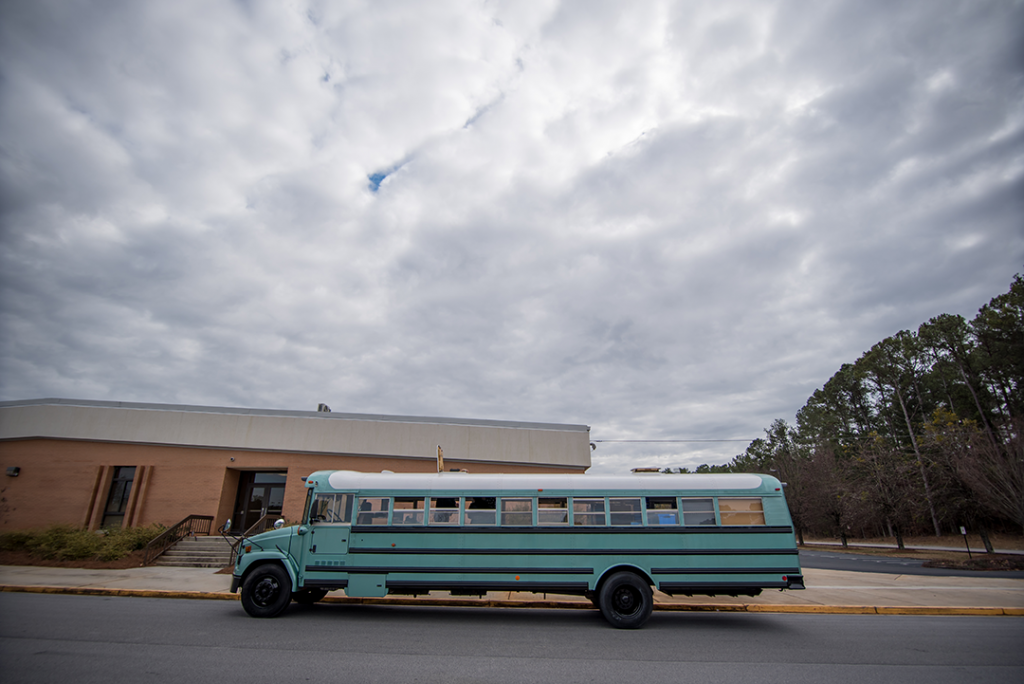
“What we said is, ‘Maybe if you give them time to learn, they can do some of that on their own,’” Rains said, “and the goal is: If you give them the opportunity to do that learning, you’re creating lifelong learners. You start building that critical thinker, a problem solver.”
With the support of NCCA Principal Chad Walker, Rains and his team instituted a Flex Days program to provide students with sufficient time and resources to reach their project goals. Students do not go to their regular classes on Flex Days but sign up to be in a particular location based on their needs.
“They get to choose where they’re going to work, who they’re going to work with and what they’re going to work on,” Rains said. “They have this one day a week where they can have access to labs, resources or, for them, the bus.”
STEM Bus associates raved over the merits of having a designated day to work on their projects. Associates get one-on-one help, as well as encouragement, from trainers.
“The trainers push us to do better,” senior Elaina Smith said. “I’ll come to Mr. Rains and I’ll say, ‘Ok, I have this,’ and he’ll be like, ‘Ok, what are you going to do next? How do you go even further?’ They just push you higher.”
Flex Days also allow the opportunity for students of different ages to work together, fostering a strong community of mentorship.
“It really is like a family,” junior Corinne Hanson said. “I can depend on my friends here, whether they’re in my grade level or not. It kind of makes you want to go to school. When you have friends and they’re interested in the same things you’re interested in and they all have a general love for what you’re doing, it’s so much easier.”
The STEM Bus Extension Project will launch into the community on April 13 at the Newton County Visitors Bureau. From the time student Alex Lowe had the idea of converting a school bus into a mobile STEM lab to the day it became a reality two and a half years later, there were numerous obstacles to overcome. The county removed perhaps the biggest impediment by donating a retired school bus. Then students applied for—and won—two grants totaling $10,000 from corporate sponsor Ford NGL. After countless hours of work by the team and a generous assist from local business partner SteelCo Buildings Inc., the project is hitting the road.
“The kids did the theoretical side of putting together their vision of what they wanted it to look like,” Rains said, “and SteelCo took [their] drawings and brought [the bus] to life.”
The result is an interior space that is a uniquely designed mobile STEM lab, including workstations for laptops and projects. Initially, students coming on the bus will have the opportunity to choose from about 30 STEM projects.
“A lot of kids think science, technology, engineering and math is so boring,” sophomore Trey Kimble said. “We are bringing projects on the bus to show K-12 students throughout the county [that] it’s fun.”
Rains hopes that local businesses and industry that have STEM-based jobs will participate in the STEM Bus events by showcasing the different types of positions available and the skills needed to hold them.
“The kid that’s a third-grader right now, when they graduate from college, they [will] know what STEM jobs are available in Newton County,” Rains said, “and we’re eventually just going to create a pipeline of students that come back to work here in this community. That’s the hope.”
Soon, these STEM students will be graduating and moving on to the next phase of life. Rains believes—and history confirms—that the STEM Institute is preparing its students well for whatever path they choose.
“It’s getting a kid to say, ‘OK, what do I do when I don’t know what to do?’ and figuring that out,” he said. “What we need more of today is problem solvers. There are lots of problems. We need more problem solvers.”
Click here to read more stories by David Roten.

